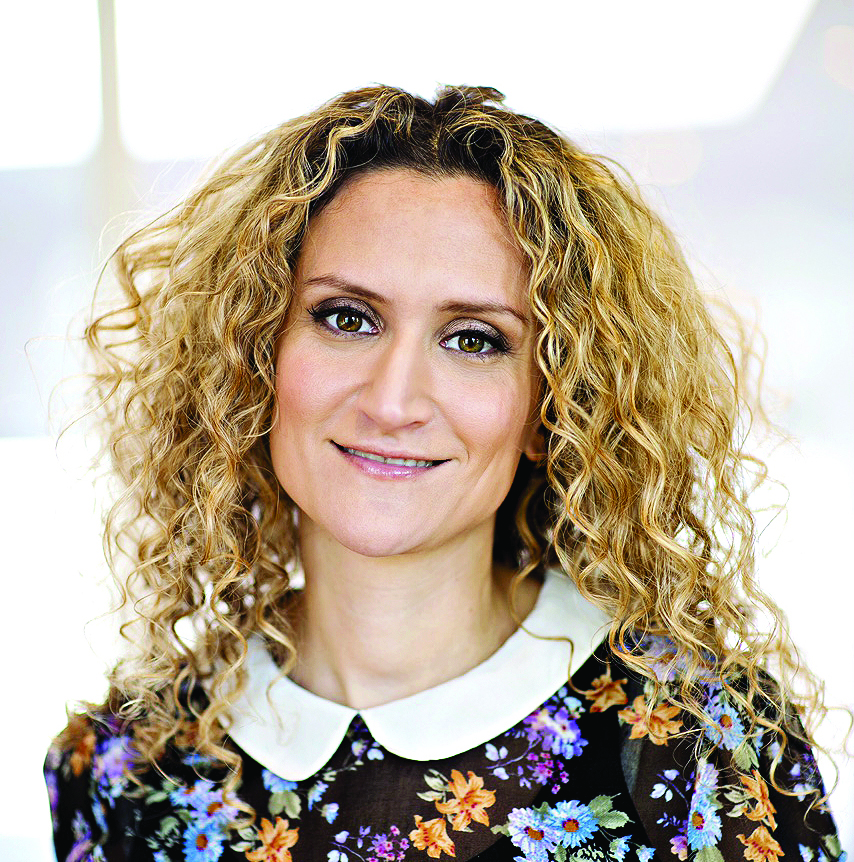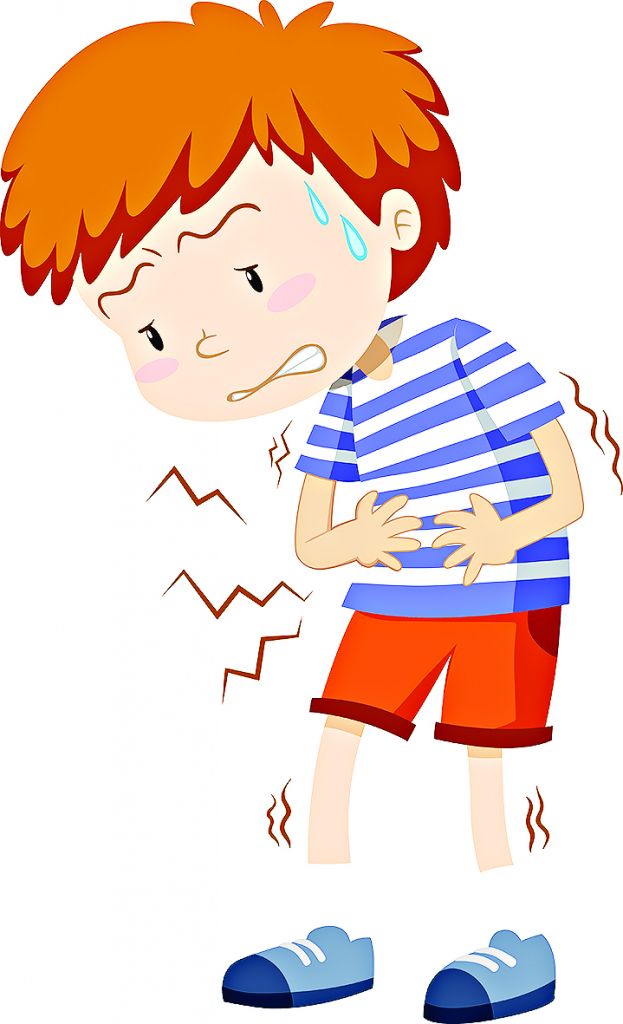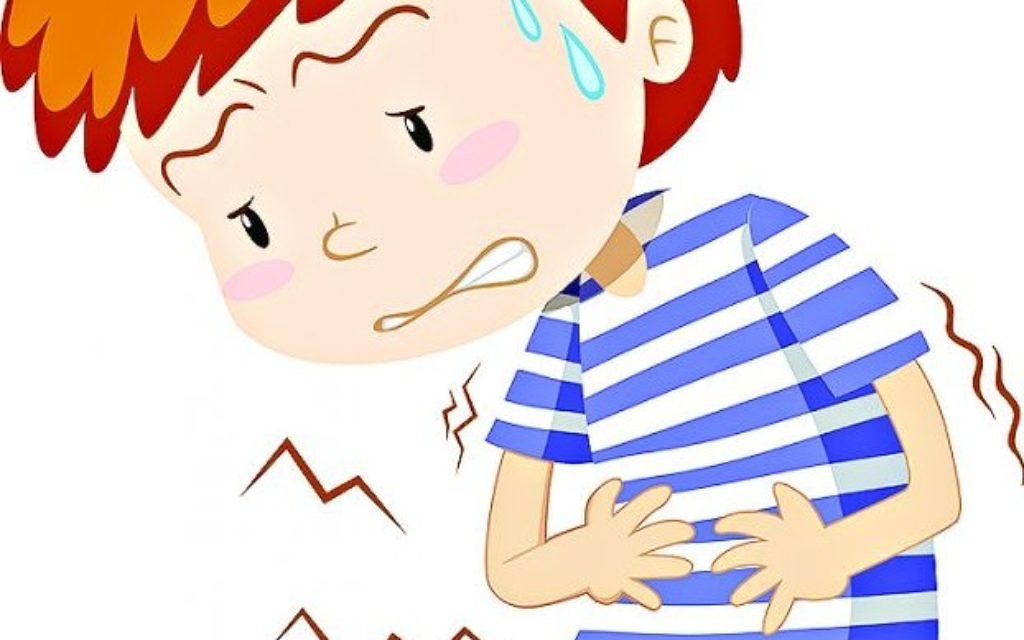Ask Dr Ellie Cannon! This week: DVT, menopause and irritable bowel syndrome
Our resident GP Ellie Cannon answers your burning medical questions...
Q My husband returned from a long-haul business flight with a swollen leg and has now been told he has DVT. We thought he was healthy. Can you explain more about it please?
DVT is a deep vein thrombosis and a blood clot in the lower leg veins. The blood circulates around the body due to the action of the heart pumping, which pushes it round. When it gets to the extremities furthest away from the heart, the pressure pushing the blood is a bit lower and a bit slower.
For some added help, the blood is squeezed on its journey back to the heart, with the help of the leg muscles. When the leg muscles move – for example, when you are simply moving around – the veins are squeezed, encouraging the blood flow. If your legs aren’t moving much, for example, because you’re stuck in an airline seat, the blood becomes sluggish and moves much slower as it’s not being squeezed. When the blood is moving slowly or turbulently rather than in this normal way, a clot can develop.
Get The Jewish News Daily Edition by email and never miss our top stories Free Sign Up
This happens classically in people who are immobilised – after surgery for example, or long-term immobility or even from a long-haul flight. This is sometimes known as economy-class syndrome.
There are conditions that some people have called ‘clotting disorders’, which make this more likely, as well as diseases such as cancer or Lupus when, generally, the blood is more likely to clot.
The treatment will be blood thinners and a thorough investigation of why the clot happened. In this case, it could simply be just the flight.
Q Can I be tested for the menopause? I’m 49 and have noticed flushing as well as changes in my cycle. How do I know whether or not to get HRT?

There is no medical value in testing for the menopause, other than ‘knowing’, so the NHS doesn’t usually offer it anymore.
If you are experiencing changes in your cycle with flushing, then the likelihood is you are, particularly as you are the right age – the menopause usually occurs for most women between the ages of 47 and 52, and can also depend on the age your mother experienced it.
Other symptoms that are pretty classical are insomnia, mood changes, dryness and urinary discomfort, as well as thinning hair: not a fun group of symptoms for something that is a normal part of life for women.
The decision to take HRT is entirely personal. Nowadays menopausal women are busy, often working, often caring for young children, maybe in new relationships, travelling and living life to the full: no longer getting ready for retirement or grandparenthood. There is not really time to be burdened with symptoms. This is why many women choose HRT to replace their oestrogen and reduce their symptoms.
The most common reason I am asked for this is because of the mood and insomnia effects, which can be crippling.
All medications have risks and HRT is associated with a very small increase in breast cancer risk: this will be weighed up with you when it is prescribed.
Q Do you think children can get irritable bowel syndrome? My 10-year-old girl seems to get a lot of tummy aches and intermittent diarrhoea.
 Children can get irritable bowel syndrome, but it is really important for your daughter to be checked out, given the symptoms you have mentioned.
Children can get irritable bowel syndrome, but it is really important for your daughter to be checked out, given the symptoms you have mentioned.
Tummy aches are hugely common in children: they occur for a variety of reasons, including the common ‘psychosomatic’ tummy ache children get, associated with nerves or worry.
Tummy aches in children can also be caused by milk allergy or lactose intolerance, infections and urinary issues.
When that tummy pain is associated with diarrhoea, then there are two things that need to be looked at properly by a doctor: Could she have Crohn’s or coeliac disease? Both of these are bowel diseases and can appear at her age, also with symptoms of diarrhoea.
Crohn’s is an inflammatory bowel disease affecting the bowel the whole way through: this could also have caused her to stop growing – have you noticed what height she is compared to her peers? It is really important to start treatment really early for Crohn’s so her growth is as affected as little as possible.
Coeliac disease is another bowel disease specifically affecting the jejunum within the bowel – it is an allergy to gluten (the protein within wheat) and causes tummy aches, diarrhoea, bloating and tiredness. If she has this, she needs to be on a strict gluten-free diet long-term.
A doctor would only diagnose irritable bowel syndrome, or IBS, once these other things have been ruled out.

Thank you for helping to make Jewish News the leading source of news and opinion for the UK Jewish community. Today we're asking for your invaluable help to continue putting our community first in everything we do.
For as little as £5 a month you can help sustain the vital work we do in celebrating and standing up for Jewish life in Britain.
Jewish News holds our community together and keeps us connected. Like a synagogue, it’s where people turn to feel part of something bigger. It also proudly shows the rest of Britain the vibrancy and rich culture of modern Jewish life.
You can make a quick and easy one-off or monthly contribution of £5, £10, £20 or any other sum you’re comfortable with.
100% of your donation will help us continue celebrating our community, in all its dynamic diversity...
Engaging
Being a community platform means so much more than producing a newspaper and website. One of our proudest roles is media partnering with our invaluable charities to amplify the outstanding work they do to help us all.
Celebrating
There’s no shortage of oys in the world but Jewish News takes every opportunity to celebrate the joys too, through projects like Night of Heroes, 40 Under 40 and other compelling countdowns that make the community kvell with pride.
Pioneering
In the first collaboration between media outlets from different faiths, Jewish News worked with British Muslim TV and Church Times to produce a list of young activists leading the way on interfaith understanding.
Campaigning
Royal Mail issued a stamp honouring Holocaust hero Sir Nicholas Winton after a Jewish News campaign attracted more than 100,000 backers. Jewish Newsalso produces special editions of the paper highlighting pressing issues including mental health and Holocaust remembrance.
Easy access
In an age when news is readily accessible, Jewish News provides high-quality content free online and offline, removing any financial barriers to connecting people.
Voice of our community to wider society
The Jewish News team regularly appears on TV, radio and on the pages of the national press to comment on stories about the Jewish community. Easy access to the paper on the streets of London also means Jewish News provides an invaluable window into the community for the country at large.
We hope you agree all this is worth preserving.
-
By Brigit Grant
-
By Laurent Vaughan - Senior Associate (Bishop & Sewell Solicitors)
-
By Laurent Vaughan - Senior Associate (Bishop & Sewell Solicitors)
-
By Laurent Vaughan - Senior Associate (Bishop & Sewell Solicitors)
-
By Laurent Vaughan - Senior Associate (Bishop & Sewell Solicitors)






















